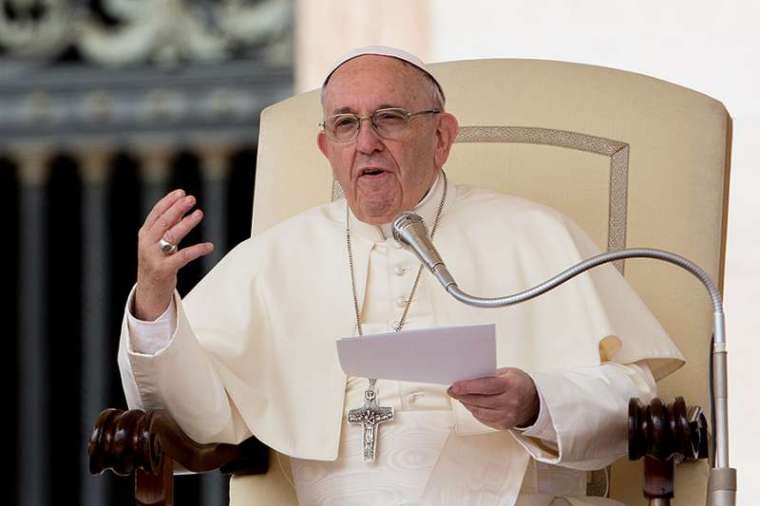Pope Francis warns of a "genocide" of the coronavirus if the economy has priority over people

In a private letter to an Argentine judge, Pope Francis is said to have warned that government decisions to prioritize the economy over people could translate into a "viral genocide."
“Governments that deal with the crisis in this way show the priority of their decisions: the people first. ... It would be sad if they opted for the opposite, which would lead to the death of many people, something like a viral genocide, "wrote Pope Francis in a letter sent on March 28, according to America Magazine, which reported having obtained the letter .
The pope sent a handwritten note in response to a letter from Judge Roberto Andres Gallardo, president of the Pan-American Committee of Judges for Social Rights, according to reports from the Argentine news agency Telam on March 29.
"We are all concerned about the rise ... of the pandemic," wrote Pope Francis, praising some governments for "adopting exemplary measures with priorities that are well aimed at defending the population" and serving "the common good".
The pope also said he was "built on the response of so many people, doctors, nurses, volunteers, religious, priests, who risk their lives to heal and defend healthy people from contagion," said Telam.
Pope Francis said in the letter that he had discussed with the Vatican Dicastery for integral human development to "prepare us for what follows" the global coronavirus epidemic.
"There are already some consequences that need to be addressed: hunger, especially for people without permanent work, violence, the appearance of moneylenders (which are the real scourge of a social future, dehumanized criminals)," he wrote, according to Telam.
The pope's letter also cited economist Dr. Mariana Mazzucato, whose published work claims that state intervention can drive growth and innovation.
"I think [his vision] can help to think about the future," he wrote in the letter, which also mentions Mazzucato's book "The value of everything: doing and taking in the global economy," according to America Magazine.
To combat the spread of coronavirus, at least 174 countries have implemented travel restrictions related to COVID-19, according to the Center for Strategic and International Studies.
Argentina was one of the first Latin American countries to apply strict coronavirus restrictions that ban foreigners from entering on March 17 and implemented a 12-day mandatory quarantine on March 20.
There have been 820 coronavirus cases documented in Argentina and 22 COVID-19 deaths.
“The choice is to take care of the economy or take care of life. I chose to take care of lives, ”said Argentine President Alberto Fernandez on March 25, according to Bloomberg.
Globally documented coronavirus cases exceeded 745.000 confirmed cases, of which over 100.000 cases are located in Italy and 140.000 in the United States, reports the Ministry of Health and Johns Hopkins University respectively.